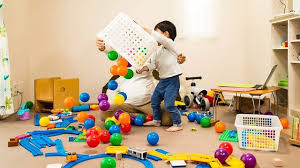
It's a heavy, uncomfortable feeling, that moment when we realize we've made a mistake. In that moment, we have choices. We can choose to over-engage with that experience and step into shame-based thinking and avoidance, or we can apologize, Yes, it's usually as simple as that. Utilizing an authentic apology is not only a necessary and effective relational tool, it's also a useful form of self care.
As parents, we often strive to be "perfect" role models for our children. Yet, just like everyone else, we’re not immune to making mistakes. Whether your children are still at home or have grown into adults, one of the most powerful ways you can demonstrate love and respect is by acknowledging your errors and making amends. Apologizing and attempting to repair relationships is not just beneficial—it’s essential, and it's never too late to start.
Why Apologizing Matters
1. Modeling Accountability: Apologizing to your children, regardless of their age, teaches them the importance of taking responsibility for their actions. This lesson is crucial for both their personal and relational development.
2. Building Trust: Honesty and vulnerability engender trust. When you apologize sincerely, you show your children that you value the relationship enough to own up to your mistakes.
3. Emotional Healing: Apologizing can be profoundly healing for both you and your child. It allows wounds—whether recent or decades old—to begin to heal, fostering a healthier emotional landscape for everyone involved.
Tips for Apologizing to Younger Children:
1. Get Down to Their Level: Physically lowering yourself to eye level can make the apology more sincere and direct.
2. Use Simple Language: Kids respond better to straightforward, age-appropriate language. Avoid complicating the apology with too many details.
3. Acknowledge Their Feelings: Saying something like, "I understand that when I raised my voice, it scared you. I'm really sorry," helps them feel seen and heard.
4. Allow the Apology to Stand Alone: Avoid redirection or pointing out what the child did that contributed to your frustration. Make sure the child always knows your emotions are not their fault or responsibility.
Tips for Apologizing to Adult Children:
1. Be Sincere and Specific: A heartfelt apology should clearly state what you’re apologizing for. Avoid vague statements like, “I’m sorry for everything.”
2. Validate Their Experience: Acknowledge their feelings and experiences without being defensive. For instance, "I didn't fully understand how my actions affected you, and I deeply regret it."
3. Focus on Repair and Growth: Offer actionable steps to repair the relationship and demonstrate a commitment to change. This could be through regular communication, therapy, or simply making an effort to be more supportive.
4. Accept Your Adult Child's Response: Apologizing is you taking responsibility for you. It's not a guarantee that your relationship will improve.
Studies in adult development, such as those by renowned psychologist Erik Erikson, highlight the importance of reflecting on past actions in later stages of life. Erikson's theory suggests that meaningful relationships and generativity—making amends and leaving a positive legacy—are vital components of a fulfilling life. Apologizing is a powerful way to foster these elements in your relationship with your children, regardless of their age.
Dr. Robert Kegan’s work on adult development also emphasizes the concept of evolving self-identity. Apologizing and repairing relationships can be a transformative experience that contributes to both emotional and cognitive development.
By openly embracing the power of an apology, you create a legacy rooted in love, humility, and growth. It's never too late to apologize and make amends. Whether it’s a heartfelt conversation over coffee with your adult child or a gentle word with your little one before bed, the act of apologizing can significantly strengthen your relationship, as well as your positive sense of self.
What have you found most challenging about apologizing? Share your thoughts in the comments below!












0 Comments